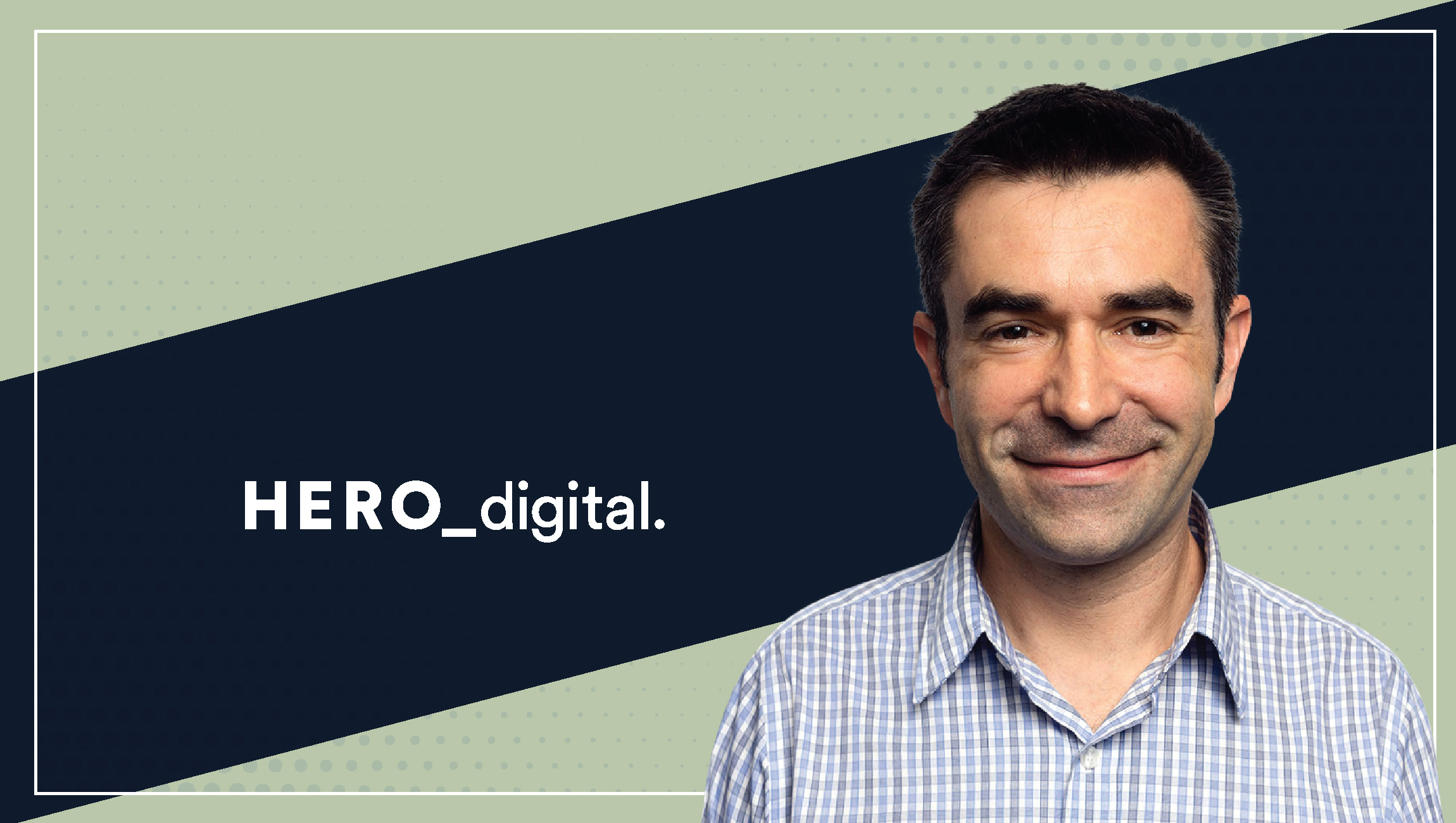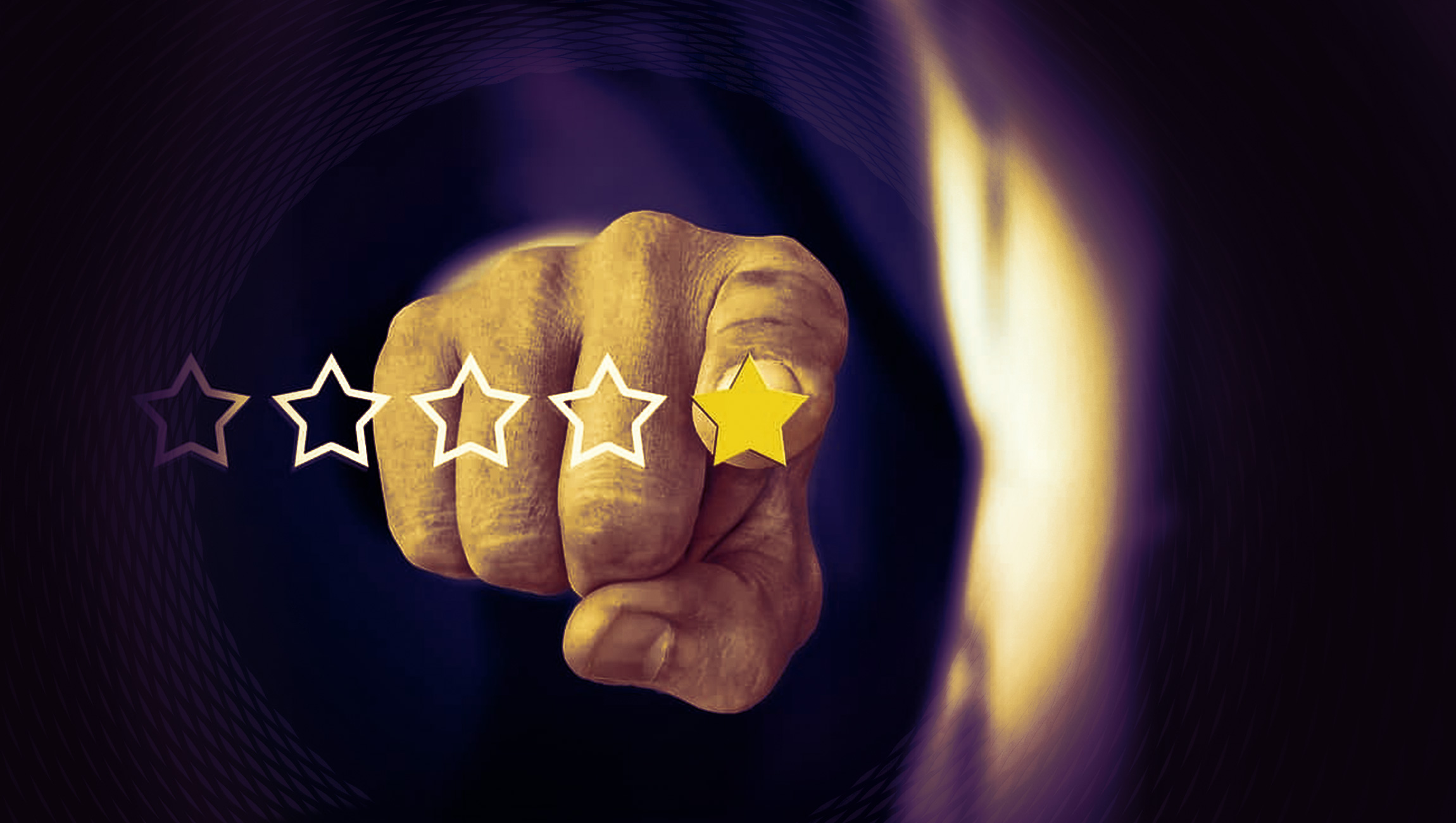Tell us about your role and journey into Technology. What inspired you to start at Hero Digital?
I have been working in Silicon Valley for 20 years and got my start on the software side of the business. In the late 90s, Silicon Valley was a great playground for learning, since there was a massive rush of young, energetic people with no experience in the space. My role in it was to learn everything as fast as possible and then teach it to others via professional services. I self-taught on HTML, Perl, Java, and J2EE, and I loved every minute of it. Even from my first job as a kid shoveling snow and raking leaves for the elder folks in my neighborhood, I have always been a service-oriented and entrepreneurial person.
The founding of Hero Digital came from identifying a massive service gap in the marketplace. My founding belief was that the birth of Marketing Cloud platforms from companies like Adobe would give rise to a market need for new type of services provider who could be the CMO’s secret weapon – a partner who could be strong on Strategy, Design, Data, and Marketing, and also with deep expertise on the Marketing Cloud platforms that would dominate the future.
What is Hero Digital and how does it fit into a modern Technology stack?
We are a pure services provider focusing on our clients’ end customer experience. While business strategy and gorgeous design anchor those customer experiences, they are built on experience platforms like Adobe, Sitecore, Salesforce, and Oracle. We help our clients select the right technologies for their needs in an agnostic and consultative fashion, often with platform selections for CMS, Analytics, Marketing Automation, and CDP.
Once we help select technologies, we do full implementations and then run ongoing Marketing programs, ensuring that our clients derive a return. We are focused on tying experience initiatives to revenue growth for brands.
Which businesses are fastest to the adoption of Marketing technologies for Customer experience and Customer Service?
The current leaders in customer experience are the digital economy darlings who have been born in the last decade. Airbnb, Casper, Slack, and Dollar Shave Club have created amazing experience-driven businesses with great use of technology, and also a great ability to understand their customers through the use of data. Multi-channel businesses like Sephora have also shown leadership in connecting the digital and physical experiences.
Regulated industries like Financial Services and Healthcare are not far behind, and there are tremendous returns on experience and technology investments for businesses in these categories.
How do you see AI and ML impacting the Marketing and Sales funnels in the B2B and B2C industries?
Profoundly. B2C businesses collect more data about their customers than they ever have in the past. Simultaneously, brands will have to invest mightily in building trust with their customers over time, rather than thinking transactionally. To accomplish this, nurture paths and thoughtful, personalized touches with well-targeted content will become critical. These nurture paths will be managed by humans at a strategic level but executed by AI in our technology platforms which will be able to serve the person in their moment.
On the B2B side, the picture is even more complex due to longer sales cycles, buyer-team dynamics, and deep consideration and diligence. Sales gets engaged later in the process after customers have self-educated on the problem they are solving and the company’s ability to meet them where they are. Since the customer will need to “pull” so much information from a B2B brand during the education process, brands will need to deliver content that is situationally salient and specific to the customer’s company. While humans will set the strategy, AI and ML in our MarTech platforms will execute the touches. I think it’s early days, but AI and ML are important investment areas for those companies looking to turbocharge their Marketing funnels and enable their Sales teams with better-quality leads.
Tell us about the recent partnership with Bulldog Solutions. How do you plan to extend the benefits of this partnership to your customers?
Bulldog is a fantastic company and I’m thrilled that we have now joined forces. They specialize in B2B strategy, campaign creative, and demand gen programs, with deep expertise on Eloqua, Marketo, and Salesforce. Combining those capabilities, they’ve driven significant revenue growth for their clients.
Our existing B2B practice had the breadth to invent new ideas and create gorgeous digital experiences, and now adding Bulldog’s depth in B2B demand gen will tie initial ideas to ultimate business results. We are looking forward to bringing Bulldog’s capabilities to our B2B client base.
What do you think about the fine combination of Digital Anthropologists and Data Scientists in the modern Marketing world?
Digital Anthropologists and Data Scientists are both looking for human truth; they come at it from equally important but different angles. We use both archetypes in our business. The anthropologists are researchers, looking for bigger insights about how people behave. For instance, let’s say a company wants to launch a new product to disrupt the broken travel industry.
The anthropologists will dig to answer WHY people travel in the first place. When they identify a brilliant insight about a segment, such as “Gen Z replaces higher education with the learnings they can get from adventure travel,” that insight could lead to a new product launch.
Once this venture is built, launched, and running, vast amounts of customer data will be collected. This is where data scientists become critical for surfacing even deeper human truth. The data might teach us which initial experiences lead a customer to seek a second one, creating an optimization opportunity. Or more profoundly, the data might show a surprising insight, such as uptake from adventurous, always-learning Baby Boomers who are unexpectedly using this new modern travel product.
At that point, the anthropologists have a new project to do – and a new human truth to seek!
Which Marketing and Sales Automation tools and technologies do you currently use?
Our clients use Adobe, Salesforce, Oracle, Sitecore, Google, Acquia, Episerver, Domo, and Tableau, among others.
What startups in the technology industry are you watching keenly right now?
I think the data space is very interesting and changing rapidly. I was watching Datarama which got purchased by Salesforce, in a step towards solidifying their CDP. Redpoint Global, Tealium, and Session M are startups worth watching.
How do you prepare for an AI-centric world as a Business Leader?
Have a clear sense of what machines can and should do, and what they won’t do any time soon. AI and ML will be indefensible for algorithmic decision making, but those technologies will never craft a business strategy or replace creativity. Most importantly, humans will need to apply “good taste” to experiences as technology becomes more sophisticated.
While AI could help improve experiences by guiding a user down the desired path, humans will always be the most important curators. A customer walking into a restaurant will not want to be told what to drink, but rather will want to smell the air, listen to the music, and decide with whimsy whether the moment calls for Pinot Noir or Alabarino. Humans will be the tastemakers to apply AI or to intentionally withhold it.
One word that best describes how you work.
RELENTLESS
What apps/software/tools can’t you live without?
I love Keynote as a visual communication and design tool. Slack is lifeblood. Also, my Leuchtturm notebook and a mechanical pencil are always with me for sketching and thinking. Analog still beats digital for moments of creative flow.
What’s your smartest work-related shortcut or productivity hack?
I have literally hundreds of demands as CEO. I start each day writing down about 3-4 things that I believe to be of the highest value to the company, and then that’s all I do that day.
What are you currently reading?
I am currently reading Skin in the Game by Nassim Nicholas Taleb, which is a useful essay on how human behavior is affected by risk and reward. I also just finished The Remains of the Day by Kazuo Ishiguro, which is really about the concept of one’s “life’s work,” and the level of dedication that it can entail.
What’s the best advice you’ve ever received?
When I was in my twenties, I was talking to my boss and mentor and told him I simply couldn’t do my job and get my MBA at the same time, that I didn’t think I could handle it. He took a moment to think about it, and just said “I’d like to see you find a way to do it all. You won’t regret it.” That’s what I ended up doing and I figured it out. It’s a moment I remember, and some words I come back to whenever I need to figure out how to go bigger.
Something you do better than others – the secret of your success?
Working hard is not a secret, and I do that. But my secret to finding the motivation to work hard is to always ensure I’m climbing a steep learning curve in what I’m doing. Learning is fuel for me.
Tag the one person in the industry whose answers to these questions you would love to read:
Hilary Mason
Thank you, David! That was fun and hope to see you back on MarTech Series soon.
Dave Kilimnik is the CEO and Co-Founder of Hero Digital, a top independent customer experience agency. Dave is passionate about fueling brand growth through a CX-focused strategy that is powered by data and insights and executed via a best-in-class mix of digital skills.
As a services executive with over 20 years in digital and technology, and a unique background that includes a science degree, an MBA, and three technology startups, Dave is enamored with the opportunity that Hero Digital has to help make organizations more customer-focused. He is also passionate about creating a unique work environment that brings together a variety of background, where everyone feels welcome.
Dave has worked with clients including Sephora, Belkin, and Salesforce.
Hero Digital is a leading independent customer experience company born in California at the intersection of business, design, and technology. Hero Digital works with Fortune 500 CMOs to drive business growth through superior customer experiences that deliver brand and consumer value in the digital economy.
Hero Digital’s interdisciplinary teams collaborate from inspiration to creation to launch, blending consulting, design, engineering, digital marketing, and data and analytics. A trusted advisor to the world’s best brands, Hero Digital helps CMOs at companies like Comcast, US Bank, Salesforce, Microsoft, Sephora, and Aramark invent, transform, and perform.
The MTS Martech Interview Series is a fun Q&A style chat which we really enjoy doing with martech leaders. With inspiration from Lifehacker’s How I work interviews, the MarTech Series Interviews follows a two part format On Marketing Technology, and This Is How I Work. The format was chosen because when we decided to start an interview series with the biggest and brightest minds in martech – we wanted to get insight into two areas … one – their ideas on marketing tech and two – insights into the philosophy and methods that make these leaders tick.











